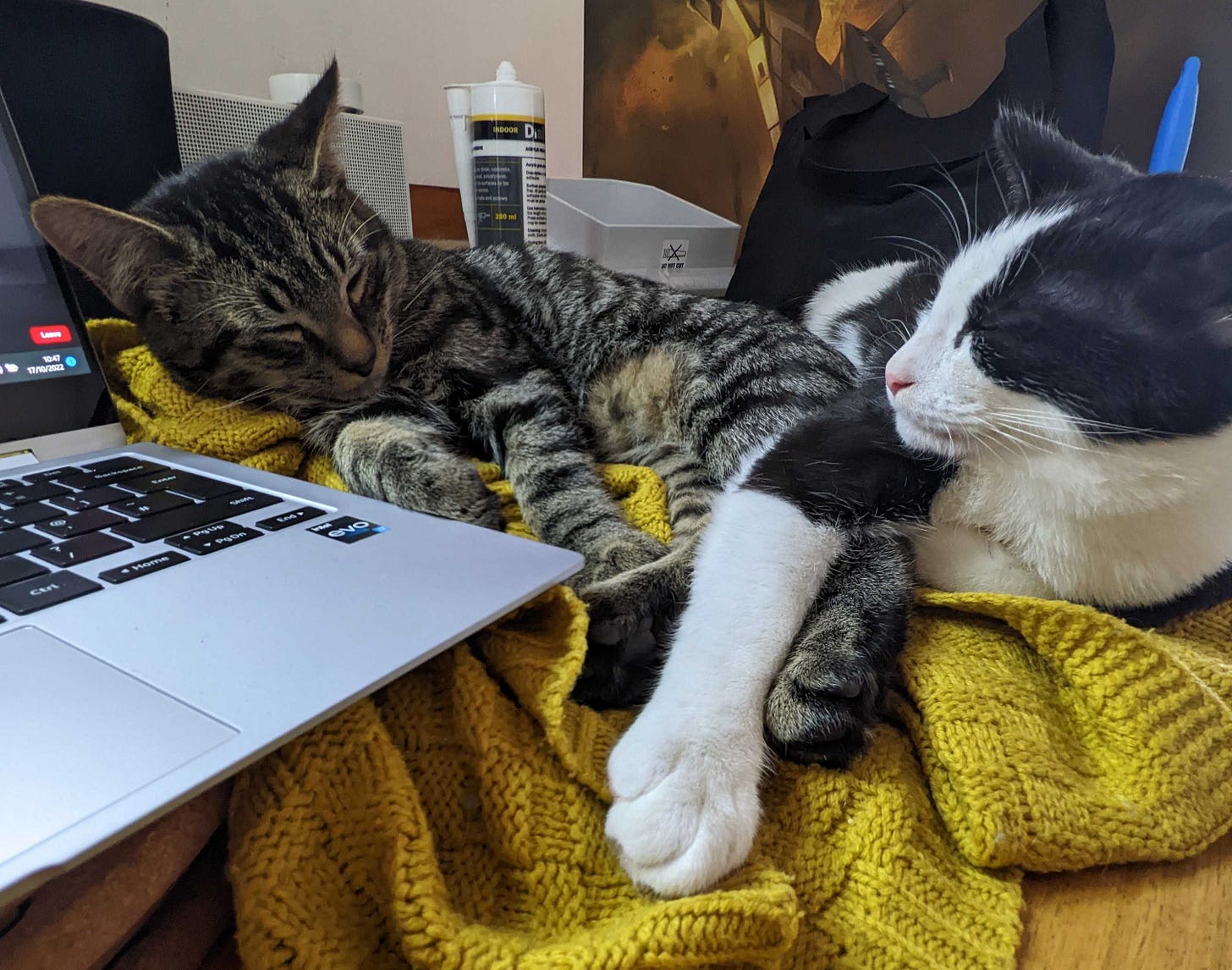The biggest perk of working for myself is that I am in control of my schedule and my working environment. When I was employed - which was pre-Covid - I found it difficult to focus in an office environment with meetings scattered throughout the day and colleagues always stopping by my desk. I’m easily distracted and love to talk, so this was a disastrous combination.
Conversation, discussion and ideas come easily to me, but I have to make a conscious effort to follow through on my actions. So, when I started my business, I knew that I wanted to structure my week around creating chunks of time to be productive, carving out focus time and (trying) not to get burnt out.
After two and a half years of experimenting, this is what that looks like right now.
Client catch-ups happen on one day
It’s important to me to catch up with my clients every week. It gives me accountability, we can agree priorities for the week ahead and it reduces the amount of email and phone calls in the week. On a Monday I often do up to ten Zooms, and that’s my focus for that day.
The rest of the week is all about focus
There are some tasks that I can do on the go or in between meetings - catching up on email, updating my Trello tasks, even drafting simple social posts. But for writing content, creating strategies or doing research, I need to focus without distractions or an impending meeting.
So for most of the week, meetings are limited. Meetings require prep beforehand and time afterwards to decompress and plan my actions. So if I have meetings scattered throughout the day, it’s difficult to get anything else done.
If I need to have a meeting during the week, I prefer to do it before lunch to leave my afternoons free to focus.
I’m not an early morning person
I’m sorry, I can’t, don’t hate me. I need an hour or two to wake up, have coffee, feed the cats and do Wordle.
I split my week between home and co-working
I rent a desk at a co-working space, because working from home usually looks like this:
I often work from home for a couple of hours in the morning, but sometimes I escape to my office for the whole day if I need to get stuff done. I like the change of scenery and then I can come home and give the cats my full attention.
My work-day includes exercise
Of the various activities I do outside of work, a few run in the daytime and this is an excellent way to take a break from my screen. I do my best thinking during lunchtime gym sessions.
Periodically I need to re-set
I’m not perfect and things slip. This week I have had meetings every day. I talked through a lot of stuff with clients, but I didn’t leave much time to actually do the work. So next week, I need to re-set and say no to any additional meetings.
(And hopefully, no more political turmoil to factor into content schedules!)
My top three focus tools
A meeting scheduling tool - Being able to say “Here’s a link to my diary to book some time to talk about X” has saved me so much time.
I use simplymeet.me so that people can book time with me. I have pre-set meeting times and this integrates with my calendar to avoid clashes. (This particular one integrates with the privacy-focused email provider that I use for work, but loads are available)
Automated task planning - I use Trello to plan my week, with a list of tasks for each day that I can move around. As some of my work is repetitive (eg meetings and social posts every week, newsletters once a month) I’ve set up automated tasks that drop in to the relevant day. This saves time and helps stop things from being missed.
Focus playlists - I need absolute silence or music without lyrics to be able to concentrate. This is my playlist of choice, and I’ll be listening to it this afternoon.





